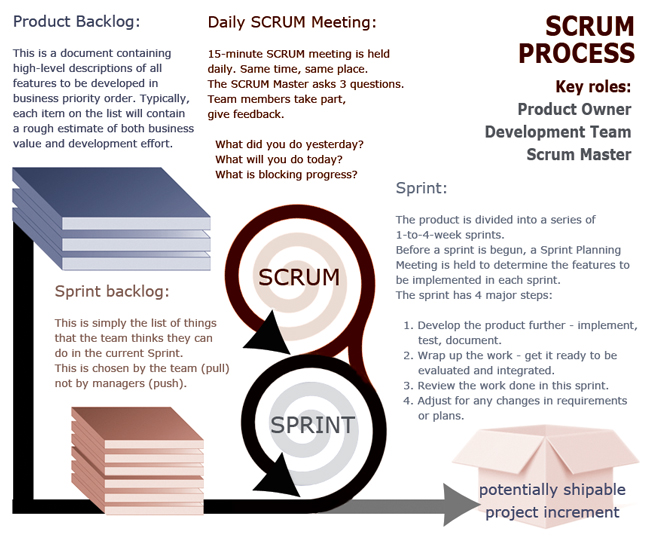|
I really enjoyed watching The Fixer last Tuesday on BBC2. With her usual style and panache, Alex Polizzi advises a failing family car repair garage, Guidebridge MOT in Ashton-under-Lyne, Manchester. Honestly (some would say brutally) she administers her hard truths about customer service, organisation and marketing. When the fleet inspector arrives (fleet work is the name for servicing done for companies with many vehicles to service), he tells her that he likes to find the s**t in people! This is apparently an acronym for: |

- Sincerity
- Honesty
- Integrity
- Trust
With usual sharp wit, Alex responds “so you want me to help them get their s**t together.”
Customer service has never been more important in my opinion. The family were under the impression that their customer service was good. They then demonstrated otherwise by keeping customers waiting without any explanation of when their vehicles would be ready. Not only that, but customers were made to wait in an area that in her own words “one would want to slit your wrists in”.
In the training business, there are times when clients need answers to questions that only trainers can respond to, so sometimes although we prefer to give all clients immediate responses to their questions we may need to wait for a response ourselves. It is important at all times to keep the customer informed of progress. A polite email or phone call is all it takes to explain any delays so the customer knows exactly when they can expect what they are looking for. It is imperative to keep communication going, nobody likes to be ignored.
A lack of marketing seems to be a common theme in the series. Alex suggests to the garage that they revisit an old idea “Women at the Wheel” where women were invited to a free session enabling them to learn to change a tyre, fill their oil and water etc. Everybody loves a freebie, and if it encourages potential clients to revisit you, even better.
Once customers receive a great or free deal, you have built a relationship with a potential paying client - you now have their trust and have gone a long way towards sorting your s**t out! These potential clients are much more likely to come back, and loyalty is what you are looking for especially in the service industry.
The highlight of the programme for me was when Alex turned up to the “woman at the wheel” event dressed in leathers.

Alex Polizzi in Leathers
I loved the look on the daughter's face when she emerged from her car!
Heather Buckley
24 Feb 2012
|
I really enjoyed watching The Fixer last Tuesday on BBC2. With her usual style and panache, Alex Polizzi advises a failing family car repair garage, Guidebridge MOT in Ashton-under-Lyne, Manchester. Honestly (some would say brutally) she administers her hard truths about customer service, organisation and marketing. When the fleet inspector arrives (fleet work is the name for servicing done for companies with many vehicles to service), he tells her that he likes to find the s**t in people! This is apparently an acronym for: |

- Sincerity
- Honesty
- Integrity
- Trust
With usual sharp wit, Alex responds “so you want me to help them get their s**t together.”
Customer service has never been more important in my opinion. The family were under the impression that their customer service was good. They then demonstrated otherwise by keeping customers waiting without any explanation of when their vehicles would be ready. Not only that, but customers were made to wait in an area that in her own words “one would want to slit your wrists in”.
In the training business, there are times when clients need answers to questions that only trainers can respond to, so sometimes although we prefer to give all clients immediate responses to their questions we may need to wait for a response ourselves. It is important at all times to keep the customer informed of progress. A polite email or phone call is all it takes to explain any delays so the customer knows exactly when they can expect what they are looking for. It is imperative to keep communication going, nobody likes to be ignored.
A lack of marketing seems to be a common theme in the series. Alex suggests to the garage that they revisit an old idea “Women at the Wheel” where women were invited to a free session enabling them to learn to change a tyre, fill their oil and water etc. Everybody loves a freebie, and if it encourages potential clients to revisit you, even better.
Once customers receive a great or free deal, you have built a relationship with a potential paying client - you now have their trust and have gone a long way towards sorting your s**t out! These potential clients are much more likely to come back, and loyalty is what you are looking for especially in the service industry.
The highlight of the programme for me was when Alex turned up to the “woman at the wheel” event dressed in leathers.

Alex Polizzi in Leathers
I loved the look on the daughter's face when she emerged from her car!
Heather Buckley
24 Feb 2012
Stand up meetings - also called Scrum meetings - are an important factor of Scrum project management. Scrum is a form of agile project management that breaks projects down into smaller, easier to manage chunks that are completed as sprints.
Daily Scrum meetings are important as the method is so changeable. They ensure that everybody is on track and minimise the chances of two team members performing the same task. However, because they are daily they must be kept short and so Scrum meetings are usually stand up meetings.
Learn more about Scrum and become accredited with Scrum Training. We run accredited ScrumMaster Training and Scrum Product Owner Training. If you wish to learn a different Agile methodology then we also provide APMG accredited Agile Project Management Training. We train to both Agile Project Management Foundation and Agile Project Management Practitionerlevels.
The Scrum process is explained in the graphic below:

For more information on Agile and Scrum read What Is Agile Project Management?
Andy Trainer
17 Feb 2012
|
“Never feel bad for being assertive, speaking your mind, and putting your foot down. What you think is anger, others see as a good solid display of self-esteem. ” - Alison James
This guest post from our Assertiveness & Confidence Building trainer Sofie explains how assertiveness leads to improved self-confidence. The full 2-day workshop covers techniques for confidence building and boosting self esteem. |

Positive communication
It is important to note that being assertive is not about being aggressive.
Assertiveness is a form of positive communication that can be learnt and applied to all areas of your life. It is the skill of knowing and defending your rights but at the same time understanding that others have rights too.
When someone is asserting themselves their primary focus should be on reaching a joint solution, which meets the needs of both people involved. In other words ‘I’m OK and you’re OK’. It is not about getting angry or making someone bow to your demands. This type of aggressive communication is manipulative and threatening and not at all considerate of other people. Equally other non-assertive ways to communicate include passive and passive-aggressive behaviours.
by Sofie
10 Feb 2012
|
“Never feel bad for being assertive, speaking your mind, and putting your foot down. What you think is anger, others see as a good solid display of self-esteem. ” - Alison James
This guest post from our Assertiveness & Confidence Building trainer Sofie explains how assertiveness leads to improved self-confidence. The full 2-day workshop covers techniques for confidence building and boosting self esteem. |

Positive communication
It is important to note that being assertive is not about being aggressive.
Assertiveness is a form of positive communication that can be learnt and applied to all areas of your life. It is the skill of knowing and defending your rights but at the same time understanding that others have rights too.
When someone is asserting themselves their primary focus should be on reaching a joint solution, which meets the needs of both people involved. In other words ‘I’m OK and you’re OK’. It is not about getting angry or making someone bow to your demands. This type of aggressive communication is manipulative and threatening and not at all considerate of other people. Equally other non-assertive ways to communicate include passive and passive-aggressive behaviours.
by Sofie
10 Feb 2012
This week the government unveiled details of a number of proposals to shake up employment laws.
The changes are in response to the Beecroft report, released in October, which claimed that unfair dismissal rules are having a major impact on British businesses and sought to remove employee rights.
David Cameron backed the report but it met strong opposition from Lib Dems, Labour and Unions. However, Vince Cable has now announced that from April 2012 the period within which employees are not entitled to claim unfair dismissal will extend from 1 to 2 years.
He also revealed a set of proposals and reforms for consideration that will further reduce the number of unfair dismissals.

Why Are Employment Law Changes Necessary?
The number of employment tribunals has risen by 40% in the past three years, and are costing businesses a vast amount of money. By introducing these reforms, the government believes businesses will save £40 million a year.
These reforms are backed by businesses who claim that they have no power to fire employees who are under performing or 'coasting' as the report puts it. Small businesses are especially in fear of tribunals as they can be very costly. This has led to a reluctance to take on new staff as SMEs (small and medium enterprises) can't then justify sacking them if they don't work out.
However, there is opposition from Labour and Unions who believe this amounts to stripping away employee rights, will not decrease the number of tribunals and will lead to a 'hire and fire' culture.
Giving more power to SMEs could lead to more managers taking the autocratic business approach made famous by Steve Jobs and Alan Sugar, and they've done pretty well in business.
So what is the government proposing to do to employment law and how will it affect businesses and employees?
Andy Trainer
25 Nov 2011
This week the government unveiled details of a number of proposals to shake up employment laws.
The changes are in response to the Beecroft report, released in October, which claimed that unfair dismissal rules are having a major impact on British businesses and sought to remove employee rights.
David Cameron backed the report but it met strong opposition from Lib Dems, Labour and Unions. However, Vince Cable has now announced that from April 2012 the period within which employees are not entitled to claim unfair dismissal will extend from 1 to 2 years.
He also revealed a set of proposals and reforms for consideration that will further reduce the number of unfair dismissals.

Why Are Employment Law Changes Necessary?
The number of employment tribunals has risen by 40% in the past three years, and are costing businesses a vast amount of money. By introducing these reforms, the government believes businesses will save £40 million a year.
These reforms are backed by businesses who claim that they have no power to fire employees who are under performing or 'coasting' as the report puts it. Small businesses are especially in fear of tribunals as they can be very costly. This has led to a reluctance to take on new staff as SMEs (small and medium enterprises) can't then justify sacking them if they don't work out.
However, there is opposition from Labour and Unions who believe this amounts to stripping away employee rights, will not decrease the number of tribunals and will lead to a 'hire and fire' culture.
Giving more power to SMEs could lead to more managers taking the autocratic business approach made famous by Steve Jobs and Alan Sugar, and they've done pretty well in business.
So what is the government proposing to do to employment law and how will it affect businesses and employees?
Andy Trainer
25 Nov 2011
We are currently four weeks in to the second series of the BBC's Young Apprentice, a spin off of the highly popular The Apprentice. Throughout the 7 series of The Apprentice there has been a lot of discussion within the project management community over whether or not the weekly tasks are 'projects' and whether or not the contestants have the right to call themselves 'project managers'. There is a concern that using project management terminology is bringing project management into disrepute, as week in week out the contestants either make huge mistakes or get through by the skin of their teeth. All this leads to the general public thinking 'well I could do that better.'

Are the Young Apprentices Project Managers?
Andy Trainer
16 Nov 2011